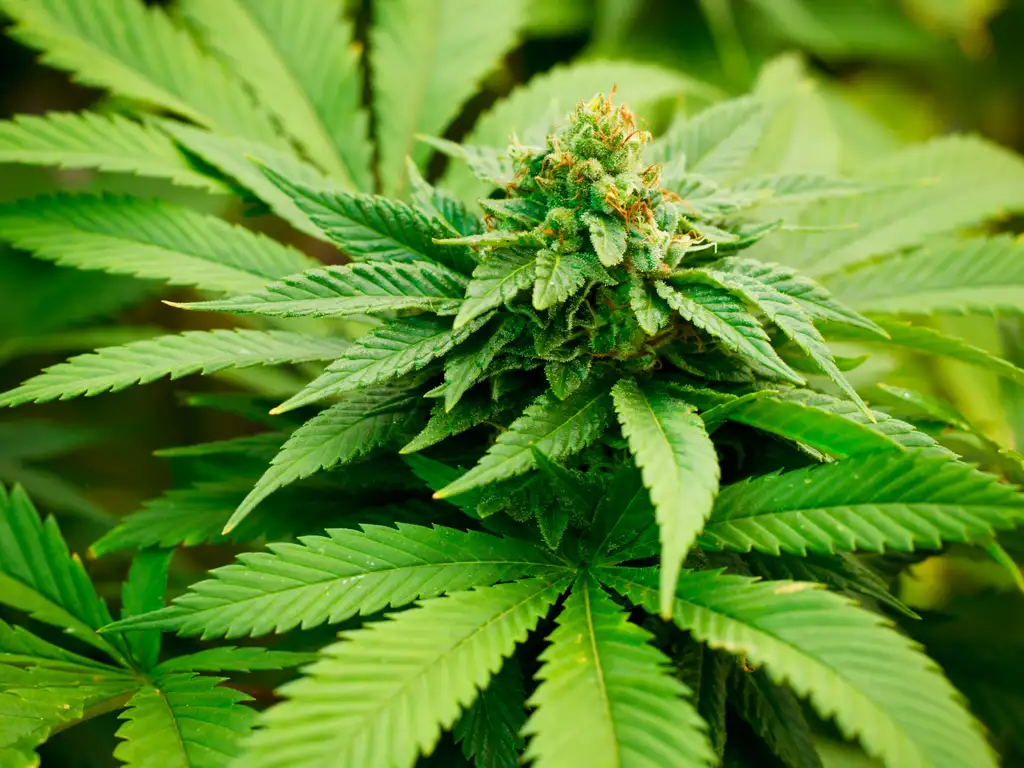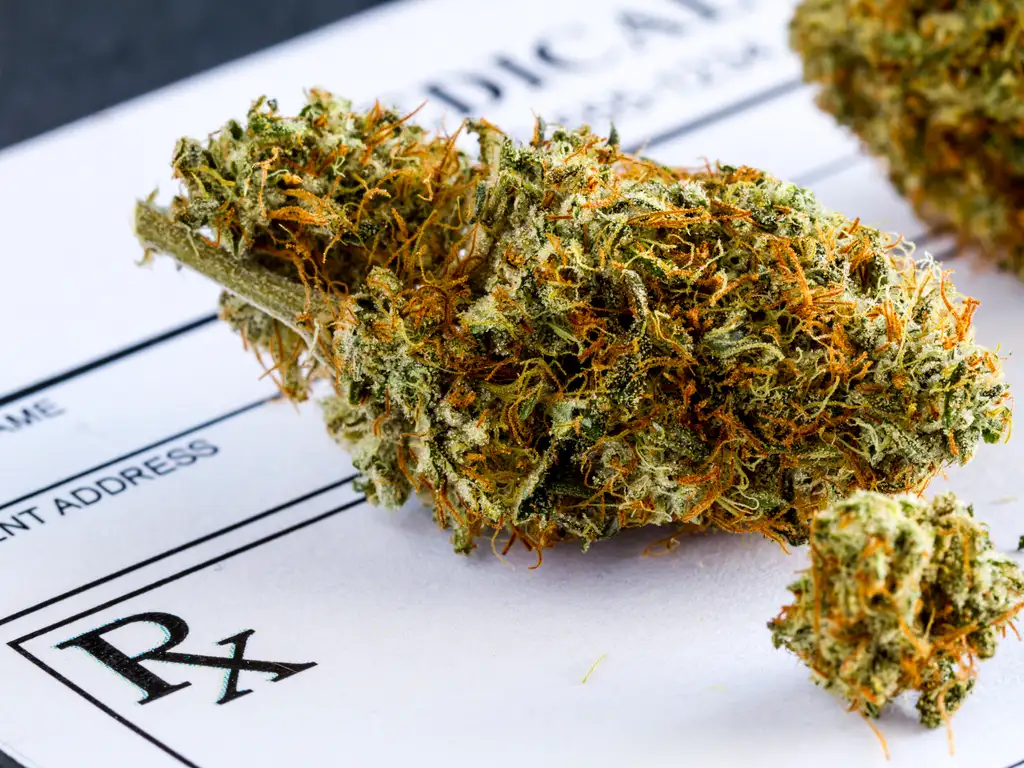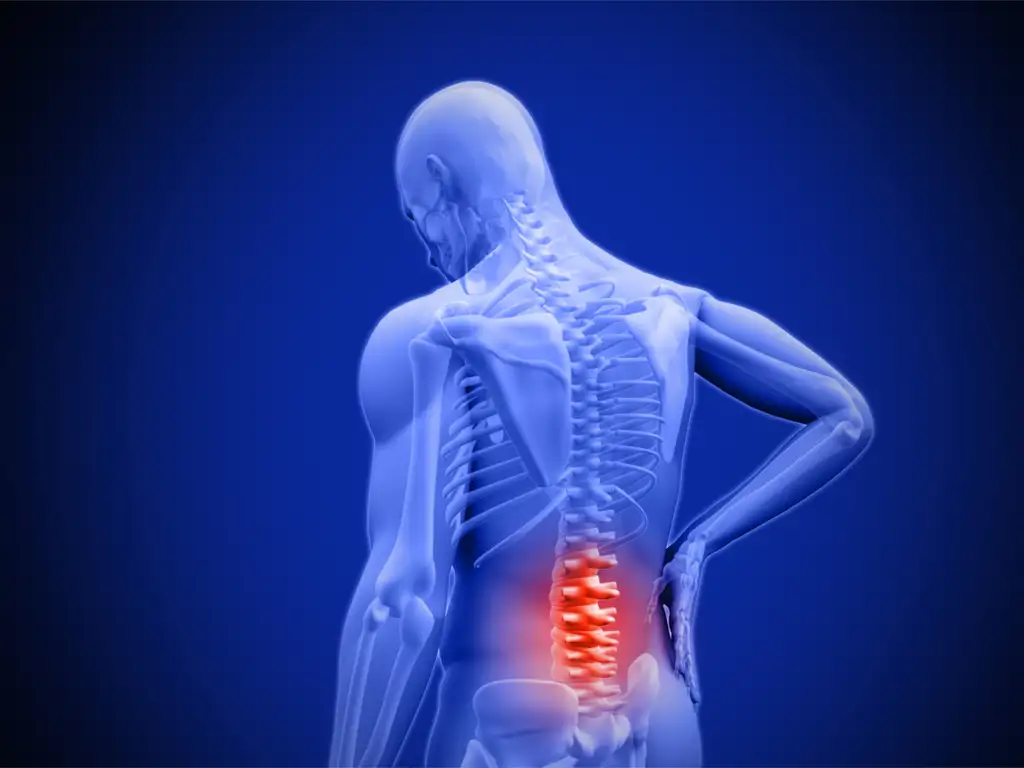Delta 8 vs Delta 9 : Have you ever thought about what makes Delta-8 and Delta-9 THC different? It’s important to know about these two cannabinoids and how they affect our bodies as the cannabis business grows.
We will talk in depth about delta 8 vs delta 9 in this blog post, looking at their chemical structures, legal status, medical uses, and possible risks and benefits.
A Brief Summary
- Understanding Hemp plants vs Cannabis plants
- Delta 8 vs Delta 9 THC both have similar effects, but different chemical structures.
- If you want to get the health benefits of Delta-8 THC, you should know about its legal position and how it is extracted.
- Be mindful of the risks connected with taking either kind of THC, as both can lead to overuse or addiction if taken improperly.
Hemp Plants vs Cannabis Plants
Both marijuana and hemp come from the same type of cannabis plant, Cannabis sativa. The two plants look a lot alike.
What is the Difference Between Hemp and Marijuana?
The part that makes you feel high is what makes Hemp different from Weed. Cannabidiol, which is also written as THC. THC levels in Hemp are 0.3% or less. That’s why goods made from Hemp don’t have enough THC to make you feel “high” or “loaded” like marijuana does.
“Cannabinoids” are the name for both CBD and THC, which are found in cannabis plants.
Cannabis has both CBD and THC. The amount of THC is higher than in Hemp, though.
How to Understand Delta-8 THC

Delta-8 THC is a cannabinoid that can be found in hemp, which comes from the cannabis sativa plant. Even though Delta-9 THC is its more famous cousin, this chemical is still very strong when it comes to getting you high. Delta 8 vs Delta 9 THC can have both good and bad effects.
Chemical Synthesis Process
One source of delta-8 THC is cannabidiol (CBD), a cannabinoid that, although naturally occurring in hemp plants in trace amounts, does not produce intoxication. A simple equation stating “CBD + acid + time = delta-8 THC” describes the ring closure reaction needed for the technique. For those who are concerned about the usage of hazardous chemicals in this THC manufacturing process, it is crucial to understand the extraction procedure before utilizing the products.
The reason for making Delta-8 THC from CBD is that it doesn’t naturally appear in cannabis plants. Manufacturers can make a lot of different Delta-8 THC goods by extracting and cleaning CBD from cannabis. This makes it easier for customers to find and use.
Understand Delta-9 THC
The famed “high” effect is caused by delta-9 THC, the major psychoactive component in cannabis. Delta-9 THC is well-known for its recreational uses, but it may also benefit those suffering from chemotherapy-induced nausea and vomiting, seizure disorders, and autoimmune diseases such as multiple sclerosis and colitis.

The Food and Drug Administration (FDA) has not cleared delta-9 THC for use in cancer, fibromyalgia, pain, headaches, or sleep disorders. This has made people self-medicate, which is bad for their health and their mental health.
Medical Use
Delta-9 THC has shown promise in helping people with a wide range of medical conditions feel better, such as nausea caused by chemotherapy, multiple sclerosis, seizures, sleep disorders, anxiety, sadness, and PTSD. Delta-9 THC may help chronically ill people sleep, reduce inflammation, and manage pain, according to studies.
While some research suggests that delta-9 THC might improve sleep quality, other studies have found the opposite to be true: that chronic usage can actually make sleep poorer and take longer to begin. The potential benefits and drawbacks of utilizing Delta-9 THC must be carefully considered.
Comparing Effects: Delta 8 vs Delta 9 THC
Now that we’ve covered the basics of Delta 8 and Delta 9 THC, let’s compare their effects. While both cannabinoids engage with the body’s CB1 and CB2 receptors, their somewhat different chemical structures may have diverse effects.

In the next sections, we will look at how these two cannabinoids compare in terms of pain relief, anxiety, panic attacks, and paranoia.
Relief from Pain
People have said that both Delta-8 and Delta-9 THC can help with pain. Both Delta-8 THC and Delta-9 THC can make you feel bad. Side effects depend on how much is taken and how often it is taken. Misuse can turn into abuse, which can turn into an addiction that you don’t want.
Anxiety, Panic Attacks and Paranoia
There is a big difference between Delta-8 and Delta-9 THC in how anxious and paranoid they make people feel. Compared to Delta-9 THC, Delta-8 THC has been said to cause less nervousness and paranoia.
Consumption Methods and Safety
As we learn more about Delta-8 and Delta-9 THC, it’s crucial to consider the many applications and the associated safety concerns. Delta-8 and Delta-9 THC can be administered orally or intravenously, and some compounds may be harmful. Knowing the best ways to use these drugs is important for making sure you have a safe and enjoyable experience.
Before using these cannabinoids, it’s important to learn about the different ways they can be used and any safety issues that come with them.
Administration via Oral and Intravenous
Delta-8 and Delta-9 THC can be taken in many ways, including by eating, applying to the skin, smoking, or vaping. There are pros and cons to each method that are unique to it. For instance, taking it by mouth, which includes tinctures, edibles, and capsules, is usually thought to be safer, easier, and more consistent in terms of benefits.
Intravenous administration, which includes smoking and vaping, on the other hand, may have more risks but gives you the benefits faster.
Potentially Harmful Chemicals
Safety concerns have been raised about the synthesis of Delta-8 THC due to the potential use of harmful chemicals during the extraction process. Due to the manufacturing process, Delta-8 THC products may contain contaminants such as heavy metals, herbicides, mold, residual chemicals, and olivetol, a precursor to THC.
Consumers should be aware of these risks and buy products that have been extensively tested for safety and quality.
Public Health Behavior
Now that we know more about Delta 8 vs Delta 9 THC, it’s clear that both cannabinoids might be helpful. But it’s important to think about how these cannabinoids affect the health and well-being of the society as a whole.
In this part, we’ll talk about the effects of Delta-8 and Delta-9 THC on public health, including how they affect behavior and health and how they hurt the community.
Medical Cannabis
Delta-8 and Delta-9 THC have both shown promise as alternative ways to treat a number of medical problems. These cannabinoids have a wide range of possible uses for people who are trying to get relief from their symptoms. They can help with pain and sickness, among other things. Delta-8 THC is also said to have similar benefits to Delta-9 THC with fewer risks and negative effects. This makes it a good choice for people who are sensitive to Delta-9 THC’s side effects.
But it’s important to remember that more studies are needed to fully understand what Delta 8 vs Delta 9 THC can do. We can learn more about how these cannabinoids can be used in medicine and how they affect the health and well-being of people who use them by doing more study and education.
Community Health
Delta-8 THC and Delta-9 THC risks and bad effects must not be ignored when it comes to public health. By giving people who want to try cannabis a safer option, Delta-8 THC may help improve health choices for the community.
But it’s important to keep an eye on Delta-8 THC use and its possible side effects to make sure that the good things about it outweigh the bad.
Delta-8 THC in the Cannabis Industry
As Delta-8 THC’s popularity has grown, so has interest in its possible uses in research and product creation. We will talk about the psychoactive effects of Delta-8 THC in research and the creation of different hemp and cannabis-based products in this part.
Cannabis Research
The increasing attention towards Delta-8 THC necessitates further investigation in order to comprehensively comprehend its impacts and potential advantages. Through the investigation of Delta-8 THC and its interaction with the human body, scholars can enhance their comprehension of the potential therapeutic uses and potential hazards associated with its implementation.
Further investigation will unveil the complete capabilities of Delta-8 THC, paving the way for the creation of safer and more efficacious products for consumers.
Cannabis Products
Numerous products containing Delta-8 THC are commercially available in the cannabis industry, such as edibles, tinctures, and vaporizer cartridges. The increasing popularity of alternative cannabinoids that provide the same benefits as conventional cannabis products while presenting fewer risks and adverse effects underscores the need for such products.
It is probable that further advancements in the cannabis sector will give rise to novel Delta-8 THC products, providing consumers with fresh opportunities to partake in the advantageous properties of this intriguing cannabinoid.
Drug Testing: Will Delta-8 Show Up?
People who use cannabis like Delta-8 THC often worry about whether they will show up on drug tests. Delta-9 THC is usually the main focus of drug tests, but it’s important to know how Delta-8 THC can be found and what that means for people who use it.
Most drug tests look for Delta-9 THC, which is the main potent ingredient.
Hyperemesis Syndrome
We’ve talked about the possible pros and cons of Delta 8 vs Delta 9 THC. Now it’s time to talk about the possible connection between these two types of THC and cannabinoid hyperemesis syndrome (CHS).
CHS is a medical condition characterized by severe nausea and vomiting, often associated with long-term, regular cannabis use.
A case study in the National Library of Medicine dealt with a 29 yo male in the emergency room. The summary of the study explains 3 important issues:
- Cannabinoid hyperemesis syndrome is a diagnosis of exclusion that is marked by episodes of prolonged vomiting in people who use marijuana on a regular basis.
- The practice of taking long or repeated hot baths will help some patients feel better.
- These individuals receive metabolic correction, volume restoration, vomiting medication, and Delta-9-tetrahydrocannabinol cessation in the emergency room. Many cannabis hyperemesis syndrome patients struggle to believe that Delta-9-tetrahydrocannabinol use causes their disease.
The FDA told people about Delta-8 THC
Even though Delta 8 and Delta-9 THC may have some benefits, they can also be abused and lead to addiction.
When THC goods are concentrated, they often cause problems. Edible cannabis products can help your health in ways that other drugs can’t.
A lot of people think that any drug that comes from cannabis trees is good.
But public health experts in different states don’t agree on what to do about Delta 8. The FDA has five warnings against it.
Delta-8 THC cannabis is not FDA-approved. They may be sold unhealthily, so keep kids and pets away.
- The FDA has not tested or cleared Delta-8 THC products for safety. These products may be sold in ways that put public health at risk.
- The FDA has gotten reports of bad effects from products that contain delta-8 THC.
- Delta-8 THC makes you feel high and psychoactive.
- Delta-8 THC products often use chemicals that could be dangerous to make the concentrations of delta-8 THC that are advertised.
- Delta-8 THC goods should not be given to kids or pets.
Summary
Finally, Delta-8 and Delta-9 THC may help with various medical issues, but each has its own risks and challenges. Learn about the distinctions between these two cannabinoids, their legal status, how they are used, and safety risks to make sensible use decisions.
Since cannabis regulations and studies change, it’s crucial to understand these cannabinoids and their health effects. Finally, Delta-8 and Delta-9 THC benefits can only be safely enjoyed with understanding, awareness, and appropriate use.
Thank you for choosing CBD BLOGGING.
Also , Read How Old Do You Have To Be To Buy Delta-8?
Frequently Asked Questions
Is Delta-9 safer than Delta-8?
Delta-9 THC has rules, making it a better choice than Delta-8, which may contain unknown or hazardous compounds.
How Can Delta-8 THC be used for pain relief?
Delta-8 THC reduces pain and inflammation, making it a good alternative for chronic pain sufferers.
It is stronger than Delta-9 THC, the most common THC in cannabis, according to research. It is also known to have a milder, calming effect.
Many doctors are waiting for real-world data before recommending them because they haven’t been FDA-approved.

Leave a Reply